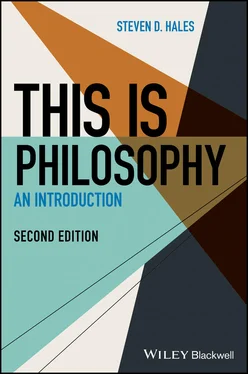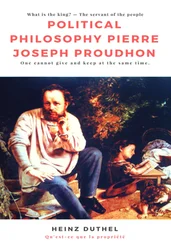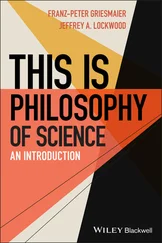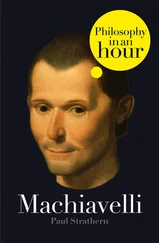The proposal that morality is essentially connected to religion has two chief components:
1 God loves (endorses, recommends, advocates) all good actions and hates (forbids, abjures, prohibits) all evil actions.
2 We can figure out which is which; that is, we can know what God loves and what he hates.
Let’s consider these in turn. Grant for the sake of argument that there is a morally perfect God, that is, there is a God who loves everything good and hates everything evil (for more on the attributes of God, see Chapter 3). For the purposes of this discussion, it doesn’t matter whether goodness/badness is primarily a quality of persons, actions, characters, or what have you. The notion of a perfectly good God is that his attitudes are in perfect sync with morality.
Plato discussed the idea that morality and religion are inseparable 2500 years ago in his dialogue Euthyphro 5. In the dialogue, the characters of Socrates and Euthyphro try to figure out the nature of piety, that is, right action. After some back and forth, Euthyphro proposes that right action is what all the gods love, and evil actions are what all the gods hate. In this way he explicitly ties morality to the choices and preferences of the gods.
Plato was no atheist–by all accounts he, like his mentor Socrates, respected and accepted the official Greek gods 6. Nevertheless, Plato thought that even if the gods are perfectly good, that fact is not enough to explain morality. Plato scrutinizes Euthyphro’s connection between morality and what the gods love by raising this very subtle and interesting question, here phrased for modern monotheists:
Are things good because God loves them, or does he love them because they are good?
Even though God loves everything good and hates everything bad, the Euthyphro question presents two very different options about God’s love.
Option A. Things are good because God loves them. This means that it is God’s love that makes things good, and his dislike that makes things bad. Prior to, or considered independently of, God’s judgment, things don’t have moral qualities at all. If it weren’t for God, nothing would be right or wrong, good or bad. Moral properties are the result of God’s decisions, like candy sprinkles he casts over the vanilla ice cream of the material world.
Option B. God loves good things because they are good. On this option, things are good (or bad) antecedently to, and independently of, God. In other words, things already have their moral properties, and God, who is an infallible judge of such matters, always loves the good things and hates the bad things. Morality is an independent objective standard apart from God. God always responds appropriately to this standard (loving all the good stuff and hating the bad), but morality is separate from, and unaffected by, his judgments.
So which is it? Option A, where God creates the moral qualities of things, or Option B, where God is the perfect ethical thermometer, whose opinions accurately reflect the moral temperature of whatever he judges? Following Plato, here are some interrelated reasons to prefer Option B.
First, think about something you love. You love your mom? The Philadelphia Eagles? Taylor Swift? Bacon cheeseburgers? Your pet dog? French roast coffee? All good choices. Now, reflect on why you love them. You can give reasons, right? You love your mom, but not everyone’s mom, because she raised you, cares for you, is kind to you, etc. Other moms didn’t do that. You love Taylor Swift because of her charisma, upbeat lyrics, and catchy pop hooks. You love French roast coffee over milder roasts because you really like the pungent, smoky, bitter brew it produces. You get the idea. In other words, your love is grounded in reasons for loving.
Suppose your friend Matt said he loves Domino’s pizza more than Little Caesars’. You ask him why–is it the sauce? The crust? The toppings? The price? If Matt said no to all that and that he just loves Domino’s more for no reason at all , well, that would be downright bizarre. It might not always be easy to come up with the reasons why you love one thing over another, but if someone literally had no reasons whatsoever, it would be perplexingly mysterious why they love that thing. Matt’s love of Domino’s pizza would be arbitrary.
Second, our emotions and feelings are in part judgments that respond to the world around us. If you are angry, you are angry for a reason–you believe that someone insulted you, or cut you off in traffic, or whatever. When emotions do not have this component of judgment, we generally think that something has gone wrong. For example, if someone is depressed because they lost their job and their spouse died, then depression is a reasonable reaction–it is a rational response to real-world events. On the other hand, if someone is depressed but has no good reason to feel blue, then we naturally look for a different kind of explanation of their depression. We may look for a causal explanation involving brain chemistry; perhaps they have serotonin deficiency, say. Irrational depression is a medical problem. Similarly, if someone is angry all the time for no apparent reason, we are liable to say that they have an anger problem, and should seek therapy. In other words, irrational emotions unconnected to facts about the world are a sign of mental stress or illness.
Under Option A God has no reasons at all for loving one thing over another. As soon as he loves something, then it becomes good, pious, and right. So there is no moral reason for God to declare murder wrong instead of right. This means that morality is completely arbitrary; the fact that rape and murder are immoral is random. God could have just as easily made rape and murder your moral duty. What’s to stop him? He’s God after all, and he decides what’s right and wrong. You can’t very well insist that God would not have made murder your positive moral duty, because murder is immoral–that’s to assume that morality is an objective standard apart from God’s decisions, which is Option B. We’re here assuming Option A is true.
Third, God could change his mind at any minute. He might show up and declare that he’s gotten bored with all those old commandments and instructions, and that he’s issuing some new moral laws. Covet thy neighbor’s wife. Do unto others before they do unto you. Eat bacon sandwiches on the Sabbath. Carve graven images of Muhammad. Thou shalt kill. If he were to declare these new rules the moral law, then they would in fact become your moral duties. Perhaps you think that God would never do such a thing. Well, why not? If you think that he is obliged to be consistent in his moral dictates, then you are setting up consistency as an objective external normative standard that God must respect. Yet the whole idea of Option A is that God’s opinions establish the normative universe, not that they abide by it.
To sum up, under Option A morality is random and arbitrary. God chooses some things to be good and others to be bad without any reasons whatsoever for his choice. His preferences are based on nothing at all, and he might as well be rolling dice to decide what to love and what to hate. Indeed, such random emotional judgments, unconstrained by external facts, are more indicative of mental illness or a loss of control than a divinely omniscient mind. Moreover, literally any action could be your moral duty, and will be the minute God declares that he loves it. The cherry on top is that there’s no reason God wouldn’t or couldn’t reverse all his previous opinions and turn morality upside down. Expect the unexpected.
If you think that those results are a bunch of crazy talk–as Plato did–then you should conclude that God’s love does not make things good. Instead, vote for Option B: God loves things because they are good. That is, God’s judgments flawlessly track moral reality; he invariably loves the good and hates the wicked. God may be a perfect judge, but he does not make the moral law. In other words, morality and religion are logically separate, which means that whether God exists has nothing to do with whether there are moral facts or what those facts are.
Читать дальше












